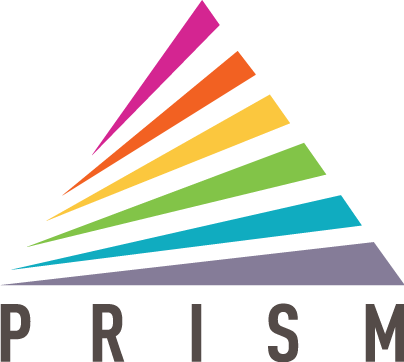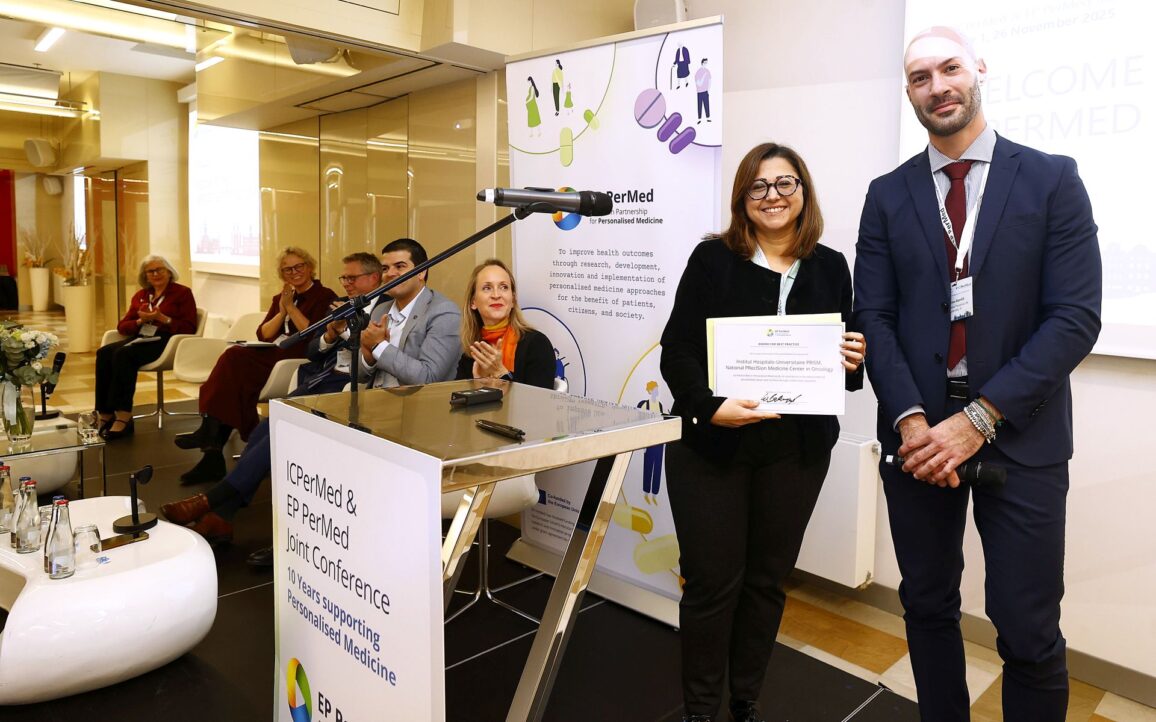EP PerMed awardes the title of “Best Practice” (BP) in Personalised Medicine to the Institut Hospitalo Universitaire PRISM, National PRecISion Medicine Center in Oncology (PRISM) in France.
After proving the effectiveness of precision medicine through pioneering clinical trials, we could not stop there and only offer targeted treatments to patients who had relapsed from conventional therapies. This is the whole ambition of IHU PRISM project: to guide patients who need it towards targeted therapies and early trials as soon as the diagnosis is made. They will thus have access to innovations while the cure of the disease is still possible.
Prof. Fabrice André, Director of IHU Prism

What is IHU PRISM and which are the main activities carried out?
The PRecISion Medicine Center in Oncology (IHU PRISM) is a large, multidisciplinary national institute dedicated to the advancement and implementation of precision oncology across various types of cancer. IHU PRISM is co-founded by Gustave Roussy, INSERM, Université Paris Saclay, CentraleSupélec School of Engineering, and UNICANCER, located on the Villejuif Cancer Campus (France).

IHU PRISM is actively engaged at the European level in Joint Actions on precision oncology and omics, including JANE2. In the newly selected JA on Personalised Cancer Medicine (JA PCM), IHU PRISM leads via Gustave Roussy, the personalised prevention arm, contributes to the other two pillars, and coordinates the work package on digital innovation to improve the patient journey.
IHU PRISM structure integrates clinical trials, molecular profiling, data science, and experimental biology, specifically designed for a comprehensive patient centric approach.
The scientific methodology is built on four pillars:
- Exploring individual aspects of cancer complexity through state-of-the-art profiling technologies.
- Integrating these data into a multidimensional view of each patient’s disease using novel technologies and applied mathematics.
- Assessing clinical benefit through innovative clinical trials.
- Co-creating a nationwide implementation plan with patients and stakeholders.
Education is a key component of IHU PRISM. The educational program includes a multi-year curriculum to train future generations of leaders in precision oncology, along with training courses tailored to all stakeholders.
Main flagship programs include:
- UNLOCK: a program designed to decipher mechanisms of action and resistance to highly innovative drugs, through the integration of clinical, translational, and fundamental research. UNLOCK also allows to prospectively optimise new technologies to uncover new multidimensional aspects of the mechanisms of action and resistance.
- INTERCEPTION: a translational program dedicated to bridging the gap between emerging scientific discoveries in pre-tumoural biology and real-world prevention strategies. Its goal is to identify the earliest signs of malignant transformation, sometimes years before a clinically detectable tumour arises and to act early to intercept the disease.
In terms of impact, how does IHU PRISM benefit citizens, the healthcare system and supports the development of personalised medicine in general?

© Jirka Koťátko
The ambition of IHU PRISM is to produce multidimensional portraits of cancer and host to guide personalised prevention and treatment, ultimately improving survival rates in over 10% of patients with hard-to-treat cancers, reducing treatment-related toxicities in at least 20% of patients, and accelerating drug development.
One of IHU PRISM main pillars is the co-creation of a nationwide implementation plan with patients and stakeholders. Dedicated teams are actively working on building a roadmap for patient-centered precision medicine using digital tools to improve care pathways, communication, and health equity. Since mid-2024, co-creation efforts have produced guides, protocols, and training linked to IHU PRISM trials. Patient-provider boards and co-creation studios are active, with a patient portal and education sessions planned. An Educational and Diversity & Inclusion Toolkit is already in use, addressing equity, ePRO accessibility, and diversity metrics. A national care pathway is also being designed using a Discrete Choice Experiment, with fieldwork beginning End of 2025 and testing in 2026.
What about connections with IHU PRISM and the private sector?
IHU PRISM has been fully involved in industrial partnerships either with big pharma or with medium/small size companies. For example, IHU PRISM is directly involved in the innovative consortium MEDITWIN. Moreover, UNLOCK program relies on such tripartite collaborations to develop Phase I and dedicated Phase II clinical trials with innovative drugs.
Does IHU PRISM take into account ethical considerations, patient engagement as well as gender diversity?
IHU PRISM integrates patient engagement and ethical oversight at every stage, through patient-provider boards (see question 17) and data privacy frameworks compliant with GDPR and national data protection regulations. Data governance follows the FAIR principles (Findable, Accessible, Interoperable, and Reusable) while maintaining robust security and privacy safeguards. Access is regulated through secure platforms with controlled permissions, encryption, and traceability of use. The approach guarantees both data openness for scientific progress and protection of individuals’ rights. Health economic assessments are integrated to evaluate the cost-effectiveness and sustainability of precision oncology approaches.
Gender equity and diversity are ensured through recruitment policies, and inclusion of gender and variables in research protocols.

